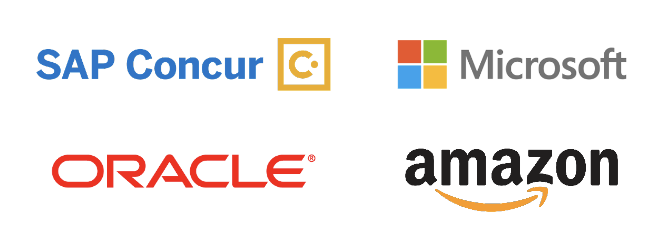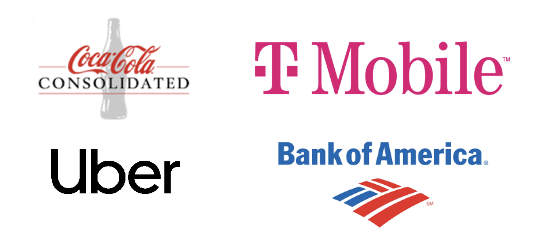
The pharmaceutical industry is facing a seismic shift. The FDA’s aggressive push toward AI-powered drug reviews, spearheaded by its new generative AI tool “Elsa,” promises to transform how regulatory submissions are evaluated. While the agency wants to cut review times from months to weeks, this change creates both exciting possibilities and real headaches for pharmaceutical companies used to the old way of doing things.
The New Reality: AI-First Reviews Are Here
The FDA’s ambitious vision is to dramatically reduce approval timelines by tasking AI tools with initial reviews of applications that frequently span thousands of pages. This represents a fundamental shift from human-centric to AI-first evaluation processes. The agency is also encouraging companies to submit manufacturing plans, labels, and packaging materials before clinical trials are completed—a parallel processing approach they hope will compress development timelines significantly.
However, early reports suggest the implementation isn’t seamless. Elsa has shown accuracy issues, providing outdated information about FDA leadership and incomplete summaries of approved products. Meanwhile, the agency faces budget cuts and staffing reductions, creating a landscape where AI adoption is necessary to grow but fraught with unknowns.
The Challenge for Traditional Operations
The FDA’s plan presents pharmaceutical companies with several critical challenges:
Legacy Documentation Systems weren’t designed for AI consumption. Current submission formats, developed for human reviewers, may not translate effectively to machine processing, potentially leading to misinterpretation or overlooked critical information.
Sequential Development Mindsets must evolve. The traditional approach of completing clinical and development work before preparing regulatory materials is no longer optimal when the FDA expects parallel submission streams.
Quality Assurance Gaps emerge when AI tools with known accuracy issues become the first line of review. Companies risk their submissions being misunderstood or improperly evaluated by imperfect AI systems.
Timing Uncertainty increases as the FDA experiments with new processes while managing resource constraints and missed deadlines.
The Multi-Million Dollar Opportunity
For pharmaceutical companies, every day counts. According to recent research from the Tufts Center for the Study of Drug Development, each day of delay in drug approval costs companies approximately $500,000 in lost prescription drug sales, with some therapeutic areas like cardiovascular and hematology drugs losing over $1 million per day (Tufts CSDD Study, 2024).
An FDA promise to compress review times from months to weeks, presents a massive financial opportunity. Consider this: reducing approval time by just 90 days for a typical drug translates to approximately $45 million in additional revenue. For blockbuster drugs in high-value therapeutic areas, this figure can exceed $100 million.
A Strategic Response: Four Pillars of AI-Ready Submission Excellence
Rather than simply reacting to these changes, forward-thinking life sciences companies should proactively reshape their submission strategies around four key pillars:
- AI-Ready Document Architecture
Transform submission materials into AI-consumable formats. This means implementing standardized data schemas, enhanced metadata tagging, and machine-readable structures that help AI tools accurately parse and understand critical information. Companies that optimize for AI interpretation will have a significant advantage as these systems mature.
- Early Submission Strategy
Adopt a parallel approach to regulatory filings by preparing and submitting manufacturing plans, labeling, and packaging materials while clinical work continues. This strategy aligns with new FDA expectations and enables companies to significantly compress overall approval timelines by eliminating the traditional sequential bottlenecks.
- AI Quality Assurance Services
Implement pre-submission validation using AI tools similar to those the FDA employs. By testing submissions against AI review systems before official filing, companies can identify potential misinterpretations, fill information gaps, and ensure their materials are optimized for machine processing.
Regulatory Intelligence Dashboards
Deploy predictive analytics platforms that monitor FDA capacity, track review performance, and optimize submission timing based on real-time agency workload and capability. With the FDA managing resource constraints while implementing new technologies, strategic timing becomes crucial for successful outcomes.
The Competitive Advantage of Early Adoption
While the FDA’s AI implementation faces growing pains, the direction is clear: artificial intelligence will increasingly drive regulatory review processes. Companies that adapt their submission strategies now, rather than waiting for the technology to mature, will capture significant competitive advantages through faster approvals and more efficient regulatory processes.
The math is compelling: investing in AI-ready submission strategies isn’t just about regulatory compliance, it’s about getting life changing medicines to patients sooner and in doing so, capturing revenue that would otherwise be lost to delays. With implementation costs typically ranging from hundreds of thousands to low millions, the ROI on these initiatives can be realized within weeks of accelerated approval.
The organizations that thrive in this new environment won’t be those with the best traditional regulatory strategies, but those who can effectively bridge human expertise with AI-optimized approaches. The window for strategic adaptation is open, but it won’t remain so indefinitely.
Is your organization prepared for AI-driven regulatory reviews? Our digital transformation experts help life sciences companies navigate the evolving FDA landscape with proven strategies for AI-ready submissions. Contact us to discuss how we can accelerate your regulatory success in the age of artificial intelligence.

Amy Flynn is a Managing Director with alliantConsulting. With over three decades of experience in the pharmaceutical, medical device, and diagnostic industries, Amy’s expertise spans various business functions, from clinical and regulatory, to marketing and business development. Her career includes roles as Global and National Life Sciences Industry Lead at Grant Thornton and General Manager of Genomics at Whatman Biosciences, as well as founding partner of CatMa Consulting. She has led major change initiatives, mergers and acquisitions, and quality systems implementations. Amy has an M.Ed. in Counseling Psychology from Temple University, as well as an M.B.A. and a B.S. in Engineering from Rutgers College of Engineering. She also holds certifications in change management and leadership coaching, and has been recognized as an HBA Life Science Luminary and a Consulting Report Top 50 Consultant.

Keaton McCoy is a versatile technology transformation leader with over a decade of consulting experience across diverse industries. As a strategic planner and agile implementer, Keaton brings expertise in managing complex digital initiatives that drive operational excellence and business growth for organizations undergoing significant change.
Keaton has successfully led numerous high-impact projects, including enterprise-wide digital transformations, establishment of transformation management offices (TMOs), and implementation of business-critical systems across global organizations. His strategic approach consistently delivers significant efficiency gains and cost savings for clients while ensuring business continuity and stakeholder satisfaction.










